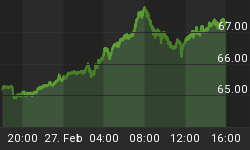Borrowing trillions of Dollars from foreigners has its costs. While the interest or financial expense is one component of the ultimate burden, other far higher costs have gone largely unnoticed until now.
A country which relies on foreigners for credit can lose political power in the global economy. On September 26th, the White House released a statement that "leaders endorsed the G-20 as the premier forum for their international economic co-operation," replacing the G-8 in that role. Even though the G-20 has met regularly, this formal announcement signifies a change in the balance of power from the United States and the developed countries to the emerging countries of the world. The timing quite clearly coincides with the United States' current economic dilemma. Because the United States is relying on foreigners to fund its budget deficit, developing countries are taking power analogous to the situation when a lender seizes collateral of a defaulting borrower.
The power grab by the developing countries within the G-20 supports the basis for why foreign nations have continued to fund US deficits despite the real threat of the US debasing the Dollar. Commonly believed reasons for why foreign central banks buy US debt are its liquidity, that foreign central banks will suffer huge losses on existing holdings if they do not support the US Dollar, or that their own economies will suffer without funding American consumption. Despite these claims, foreign buying of US debt at such low yields is economically unsound. Instead, it is possible that these central banks are strategically allowing the US to dig its own grave. While foreign nations, especially China, will ultimately take losses on its US Treasury holdings, these nations may view such losses as an investment in their long-term strategic interests. If so, the cost of borrowing for the United States is extraordinarily high when considering the power it is ceding within the global landscape.
In addition to ceding power to the G-20, there is another expense associated with massive borrowing to fund the government's budget deficit. That cost is the increasing scrutiny of the Dollar as the world's reserve currency. Although today our creditors are only talking about replacing the Dollar as the world's reserve currency, those discussions will ultimately lead to action. When that occurs, the costs from inflated consumer prices and higher long term interest rates will certainly outweigh the mere burden from growing interest payments.
The supremacy of the United States is under attack. The transition from the G-8 to the G-20 is critically important because it shows that there is a much greater price to pay than the financial expense of our trillion Dollar deficits. If the United States continues down this path, the ominous costs of relying on foreign borrowing will become evident.















